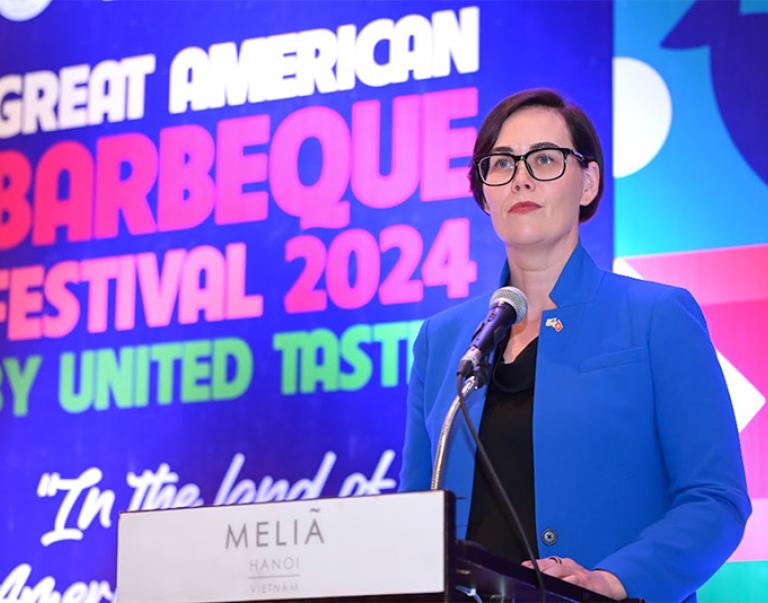While it was a bye week for the Georgia Bulldogs football there was plenty crunching of heads as Deputy Secretary of Agriculture Kathleen Merrigan held a roundtable discussion at the University of Georgia College of Agriculture and Environmental Science. Deputy Secretary Merrigan traveled to Georgia to discuss USDA's 'Know Your Farmer, Know Your Food' initiative.
The roundtable focused on ways to educate the next generation of farmers, ranchers and consumers, and let them participate in the national conversation about how to develop local and regional food systems to support small and mid-sized farms and reinvigorate rural communities. The Deputy Secretary was joined at the table by Dean Scott Angle, Terry Coleman (Georgia Deputy Commissioner of Agriculture), Hobby Stripling (Georgia State Executive Director, USDA Farm Service Agency), Shirley Sherrod (Georgia State Director, USDA Rural Development), Bryan Barrett (Georgia Area Resource Conservationist, NRCS), University students and faculty and local agriculture leaders.
The University of Georgia is already actively promoting the principles of the 'Know Your Farmer, Know Your Food' initiative through farm to school programs, their Center for Urban Agriculture, a Certificate Program in Organic Agriculture, service learning, and through the promotion of community gardens on campus. Beyond campus, the school is reaching out to farmers and ranchers across Georgia via the UGA sustainable agriculture website and a newsletter.
Deputy Secretary Merrigan emphasized the expertise that exists out in the countryside and made it clear that USDA wants to bring those ideas together because what works in one region may not work well in another and letting local communities determine what works for them makes the initiative stronger. Georgia recently received agricultural support through the Specialty Crop Block Grants and used part of the funding to invest in new crops. Georgia now boasts over 110 acres of olives under cultivation. The local leaders stated that they were witnessing the start of a new era of farmers, younger farmers that want to produce new foods and diverse crops.



